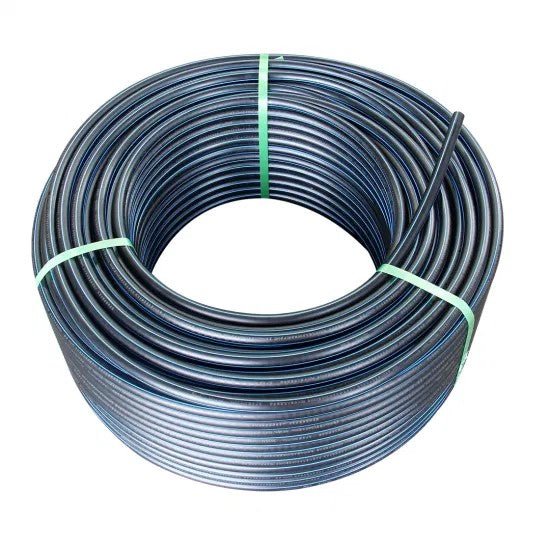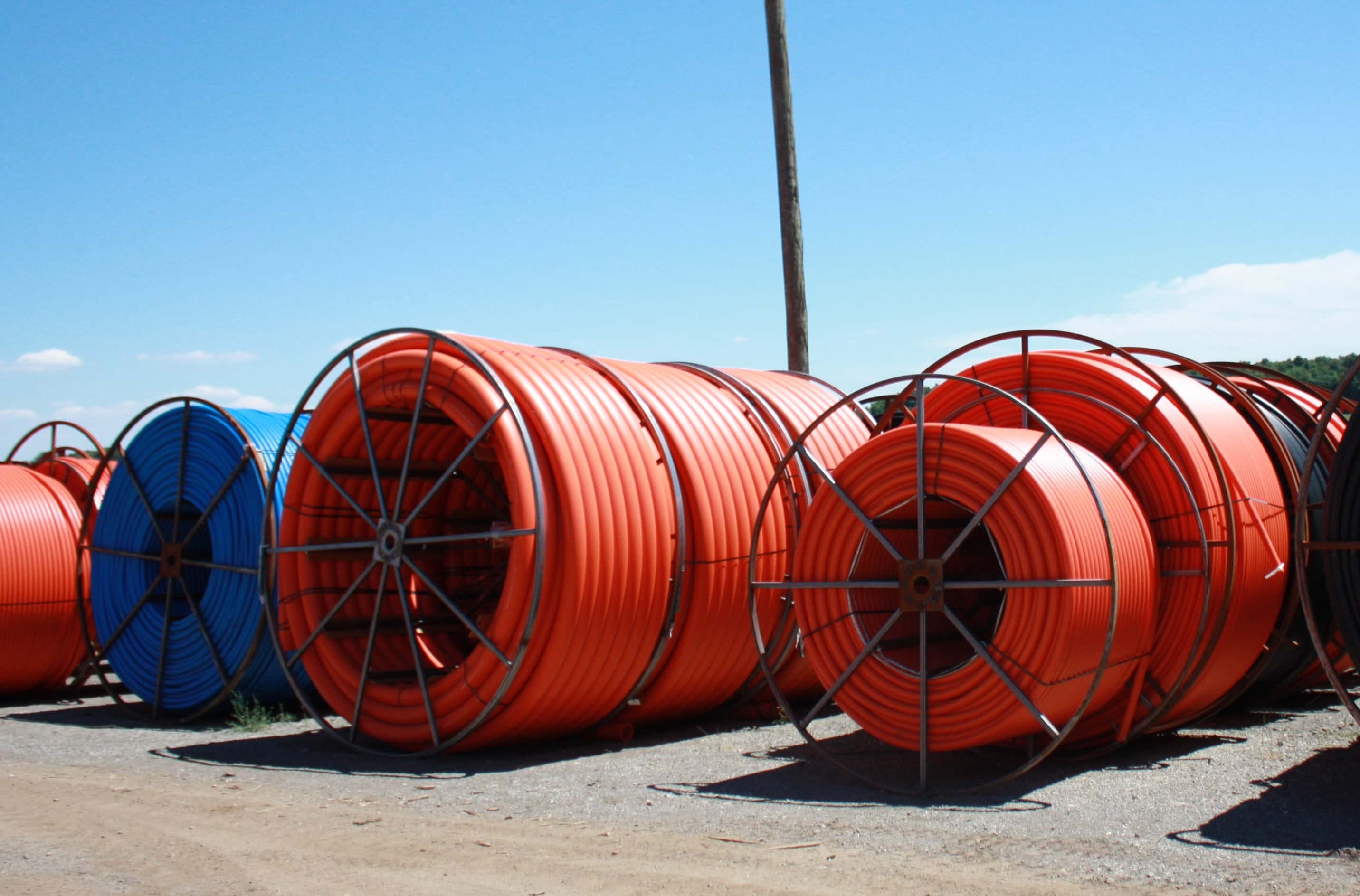Beginner’s Guide to Installing hdpe pipe fittings Midland TX for Long-Term Durability
A Comprehensive Guide to the Various Usages of HDPE Pipe in Construction and Industry
HDPE pipelines have actually emerged as an essential part in contemporary construction and commercial applications. Their one-of-a-kind residential or commercial properties, such as resistance to deterioration and light-weight design, make them ideal for a vast array of uses. From water supply systems to farming watering, HDPE pipes use solutions that improve effectiveness and sustainability. Comprehending their varied applications is necessary for professionals wanting to optimize facilities. What details advantages do these pipelines bring to each field?
Water and Distribution Systems
Supply of water and distribution systems are vital components of urban framework, usually relying upon high-density polyethylene (HDPE) pipelines for their sturdiness and effectiveness. These systems transport safe and clean water from treatment facilities to customers, guaranteeing availability and security. HDPE pipes are favored for their resistance to rust, chemicals, and extreme temperature levels, which enhances their longevity and lowers maintenance expenses. In addition, their light-weight nature permits simpler setup and transportation, making them optimal for numerous metropolitan and country applications.
The adaptability of HDPE pipelines enables them to be installed in tight areas and around obstacles, reducing the need for substantial excavation (Pipe Supplier American Plastics Midland). In addition, their smooth indoor surface area lowers rubbing losses, enhancing water flow rates. As cities remain to grow, the need for dependable supply of water systems boosts, placing HDPE pipelines as a lasting service for contemporary facilities projects. Their proven performance history makes them a recommended selection amongst designers and metropolitan organizers alike
Wastewater Management and Treatment
Reliable wastewater management and treatment are necessary for preserving public health and wellness and ecological high quality. HDPE pipelines play an essential function in this process due to their toughness, resistance to corrosion, and ability to endure rough chemicals. These pipelines are frequently utilized in numerous applications, consisting of sewer systems, stormwater drainage, and wastewater treatment centers. Their light-weight nature helps with less complicated installation and transportation, minimizing labor expenses and time.
Additionally, HDPE pipes have a smooth interior surface area that lessens rubbing loss, promoting efficient circulation rates. They are likewise less prone to leaks and failures contrasted to standard products, ensuring that impurities are consisted of effectively. Their versatility allows for flexibility in numerous soil conditions, making them suitable for diverse environmental settings. As sectors significantly prioritize lasting practices, using HDPE pipes in wastewater management systems lines up with goals for lowering ecological impact and improving source recovery.
Agricultural Watering Solutions
In farming setups, efficient watering solutions are necessary for enhancing plant returns and handling water resources. HDPE (High-Density Polyethylene) pipelines play a vital function in modern irrigation systems because of their sturdiness, flexibility, and resistance to rust. Their ability to stand up to high pressures makes them ideal for both surface area and subsurface irrigation applications, making certain consistent water circulation throughout fields.
Farmers can utilize HDPE pipes in drip watering systems, which provide water straight to plant origins, minimizing wastage and advertising healthy growth. In addition, these pipes are light-weight and very easy to set up, reducing labor expenses and installation time. Their lengthy life expectancy and low upkeep demands better boost their allure in agricultural techniques.
HDPE pipes are eco friendly, as they can be reused plumbing leak detection near me and do not leach unsafe chemicals right into the dirt. This makes them a lasting selection for farmers aiming to embrace green agricultural methods while maximizing efficiency.
Industrial Applications and Procedures
Flexibility is a trademark of HDPE pipelines, making them indispensable in numerous commercial applications and processes. These pipes are extensively utilized in chemical processing sectors as a result of their outstanding resistance to a broad variety of harsh compounds. HDPE's lightweight nature, combined with high tensile strength, enables easy installment and long-term efficiency in demanding atmospheres.
In the oil and gas sector, HDPE pipes play a necessary function in transferring hydrocarbons and gases, many thanks to their toughness and adaptability - hdpe pipe suppliers Midland TX. Furthermore, they are utilized in mining operations for the transportation of slurry and various other products, where typical piping systems may fail
HDPE pipelines are significantly utilized in producing facilities for water supply lines and wastewater monitoring. Their capability to withstand extreme temperatures and stress makes them ideal for a variety of industrial procedures. Overall, HDPE pipes add significantly to performance and security throughout varied commercial applications.
Stormwater Management and Drain Equipments
Stormwater monitoring and water drainage systems are vital components in city framework, designed to handle excess rainfall and lower flooding risks. High-density polyethylene (HDPE) pipes are progressively used in these systems because of their toughness, flexibility, and resistance to rust. These pipelines effectively transfer stormwater away from populated areas, minimizing surface overflow and avoiding waterlogging.
HDPE's light-weight nature facilitates less complicated installment, lowering labor expenses and construction time. Additionally, its resistance to chemicals and ecological stress factors guarantees long life and reliability in numerous climates. Along with conventional drain applications, HDPE pipes are additionally used in cutting-edge solutions such as green infrastructure, which consists of rainfall gardens and absorptive pavements.

Regularly Asked Inquiries
Exactly How Does HDPE Pipe Contrast to PVC Pipeline in Expense?
In basic, HDPE pipeline often tends to be extra expensive than PVC pipe because of its enhanced durability and adaptability. Long-lasting cost factors to consider, such as maintenance and lifespan, might prefer HDPE in details applications.
What Is the Life-span of HDPE Piping Under Varying Conditions?
HDPE pipes generally have a lifespan of 50 to 100 years, relying on YOURURL.com environmental problems, installment practices, and use. Factors such as temperature level, soil type, and direct exposure to chemicals can substantially influence their resilience.
Can HDPE Piping Be Recycled After Usage?
Yes, HDPE pipes can be reused after use. The recycling procedure involves melting down the material, enabling it to be repurposed into new items, therefore promoting sustainability and useful site minimizing environmental effect linked with plastic waste.
Are There Any Type Of Certain Installation Difficulties With HDPE Pipelines?
Installment obstacles with HDPE pipes consist of correct jointing techniques, ensuring appropriate trench problems, and taking care of thermal growth. Furthermore, knowledgeable labor is called for to deal with specific devices, which can complicate the setup process in different settings.

What Qualifications Should I Try To Find When Buying HDPE Water Lines?
When purchasing HDPE pipes, one must seek accreditations such as ASTM, AASHTO, and ISO, which confirm quality and conformity with industry standards, ensuring durability and efficiency in different applications. - custom hdpe pipe manufacturing Midland TX